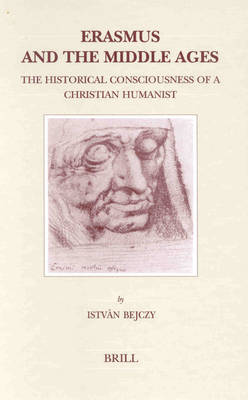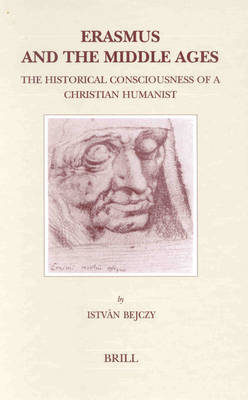
Bedankt voor het vertrouwen het afgelopen jaar! Om jou te bedanken bieden we GRATIS verzending (in België) aan op alles gedurende de hele maand januari.
- Afhalen na 1 uur in een winkel met voorraad
- In januari gratis thuislevering in België
- Ruim aanbod met 7 miljoen producten
Bedankt voor het vertrouwen het afgelopen jaar! Om jou te bedanken bieden we GRATIS verzending (in België) aan op alles gedurende de hele maand januari.
- Afhalen na 1 uur in een winkel met voorraad
- In januari gratis thuislevering in België
- Ruim aanbod met 7 miljoen producten
Zoeken
€ 81,69
+ 163 punten
Omschrijving
The aim of this book is to examine Erasmus' attitude toward the medieval past and to relate it to his historical consciousness. More than any other Renaissance humanist, Erasmus was committed to the goal of building an alternative to medieval civilisation. In his view, the restoration and study of ancient pagan and Christian literature would result in an elevation of cultural and intellectual as well as moral and spiritual standards. Yet these very assumptions appear to be challenged by Erasmus' specific observations on the course of history up to his own day. The present study is the first to show a fault line between the basic ideas of Erasmus' Christian humanism and his view of the actual development of humanity through the ages.
Specificaties
Betrokkenen
- Auteur(s):
- Uitgeverij:
Inhoud
- Aantal bladzijden:
- 224
- Taal:
- Engels
- Reeks:
- Reeksnummer:
- nr. 106
Eigenschappen
- Productcode (EAN):
- 9789004122185
- Verschijningsdatum:
- 13/08/2001
- Uitvoering:
- Hardcover
- Formaat:
- Genaaid
- Afmetingen:
- 168 mm x 247 mm
- Gewicht:
- 526 g

Alleen bij Standaard Boekhandel
+ 163 punten op je klantenkaart van Standaard Boekhandel
Beoordelingen
We publiceren alleen reviews die voldoen aan de voorwaarden voor reviews. Bekijk onze voorwaarden voor reviews.









